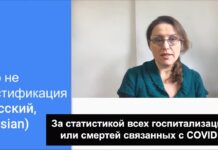Being a world traveler and polyglot can disorient someone, even a seasoned traveler like myself. I think my brain is not able to process multiple realities simultaneously. I am actually kind of embarrassed to say this given how much I love travel and believe in its benefits. However, my recent trip to Macedonia left me feeling discombobulated, not in my body, disoriented, sick and weak. I think it’s partially due to the fact that I was experiencing multiple languages, cultures and places all at once.
Physically, I was in one place — Macedonia. Technically, the name of the country is the Former Yugoslav Republic of Macedonia or FYROM. I am not going to call it that. I don’t care if someone reading this is Greek and is offended by the country’s name. (Northern Greece is also called Macedonia and the Greek government opposes its northern neighbor’s claim to the name Macedonia, citing that they are the only place with the right to bear that name.) I am not going to entertain nationalism and name wars. I’ll leave it to the diplomats to wrestle with what to call the former Yugoslav Republic. I’ll just call it Macedonia.
My body was in Macedonia — a country I’d never visited before. However, I felt like I knew the place already as it reminded me a great deal of my 15 months in Sarajevo, Bosnia after the Bosnian War. Being in Skopje’s Carsija, the old Turkish part of the city (cobblestoned, no cars, small shops), reminded me a lot of Bosnia. The smell of grilled meat and fireplaces brought back a lot of memories. I think that Bosnia, despite its violent history, antagonistic language, cold weather, and other negative things, really got under my skin. The haunting music and melancholic chords resonated deeply with me. Being back in the Balkans and seeing ugly grey Communist apartment blocks seemed very familiar. The talk of ethnic and religious conflict, land mines and the sound of a familiar Slavic language all brought me back to my life in Sarajevo in 2000-2001. The Macedonian language is similar to Serbo-Croatian-Bosnian. Most Macedonians studied Serbo-Croatian in school because it was the national language of the former Yugoslavia. When I resurrected my rusty Serbo-Croatian skills, people could understand me and would respond to me in Serbo-Croatian. Even when people were speaking in Macedonian, I could understand them.
I hadn’t spoken much of the language since I left Sarajevo in 2001, but as soon as I was entered back into the former Yugoslavia, the words came back to me. It took me a couple of days to remember certain words, but I understood almost everything.
I was in a familiar place, speaking a language that I hadn’t used in a long time and I felt very comfortable.
But my brain must have had trouble processing being a new place with an old language and speaking to other foreigners in Macedonia in English, Russian, Italian and Spanish and communicating with friends back home on Skype in French, Spanish and English. It was as though I was in a constant haze of languages, able to communicate and understand, but losing my bearing as to who I was.
Perhaps the definition of being a global citizen means being in linguistic fogs. I’d like to think that I can navigate between these multiple realities without any trouble, but that’s not the case. The talk of genocide and the memories of bombed out areas in Bosnia may have been too much for me to handle.
I came to observe the Macedonian elections. The day before the elections, I felt very tired. I woke up the next day feeling sick. I had to leave my election partner alone and take a nap during election day. I lost my appetite. I vacillated between feeling very cold to feeling super hot and sweating. I became congested and developed a deep cough. I was weak.
The ethnic Albanian doctor had to come to my hotel room because I was too weak to move. He told me I had a cold with flu symptoms. Even though I was sick, I could still maintain the conversation in Serbo-Croatian. I couldn’t believe it. I was terribly ill and had to go home. No vacation in Greece. No work trip to Munich, Germany. Home. I had to go home.
What happened? Some virus took me over. It also affected my brain. I came home and had trouble readjusting to warm California after snowy Macedonia. I didn’t feel like myself. On Monday, I felt like I was floating and didn’t feel gravity. I had to force myself to eat. Words sometimes came to me in Serbo-Croatian. Yesterday, I felt like I could fall when I got up. I had to se the doctor. She ran blood tests. There is nothing wrong with me.
“International travel is hard on the body. The change in environment can make people feel depressed or anxious and cause feelings of disorientation and sensations of out of body experiences,” explained the doctor.
But I am not stressed. Yes, the smoke in Macedonia was annoying. But there was nothing terrible about my trip.
I am not giving up international travel. But for now, I need to stay in one place. The fog of languages may always be there. I will probably always experience multiple realities at the same time given my proclivity to travel and communicate in different languages. I just need to learn to deal with it.













